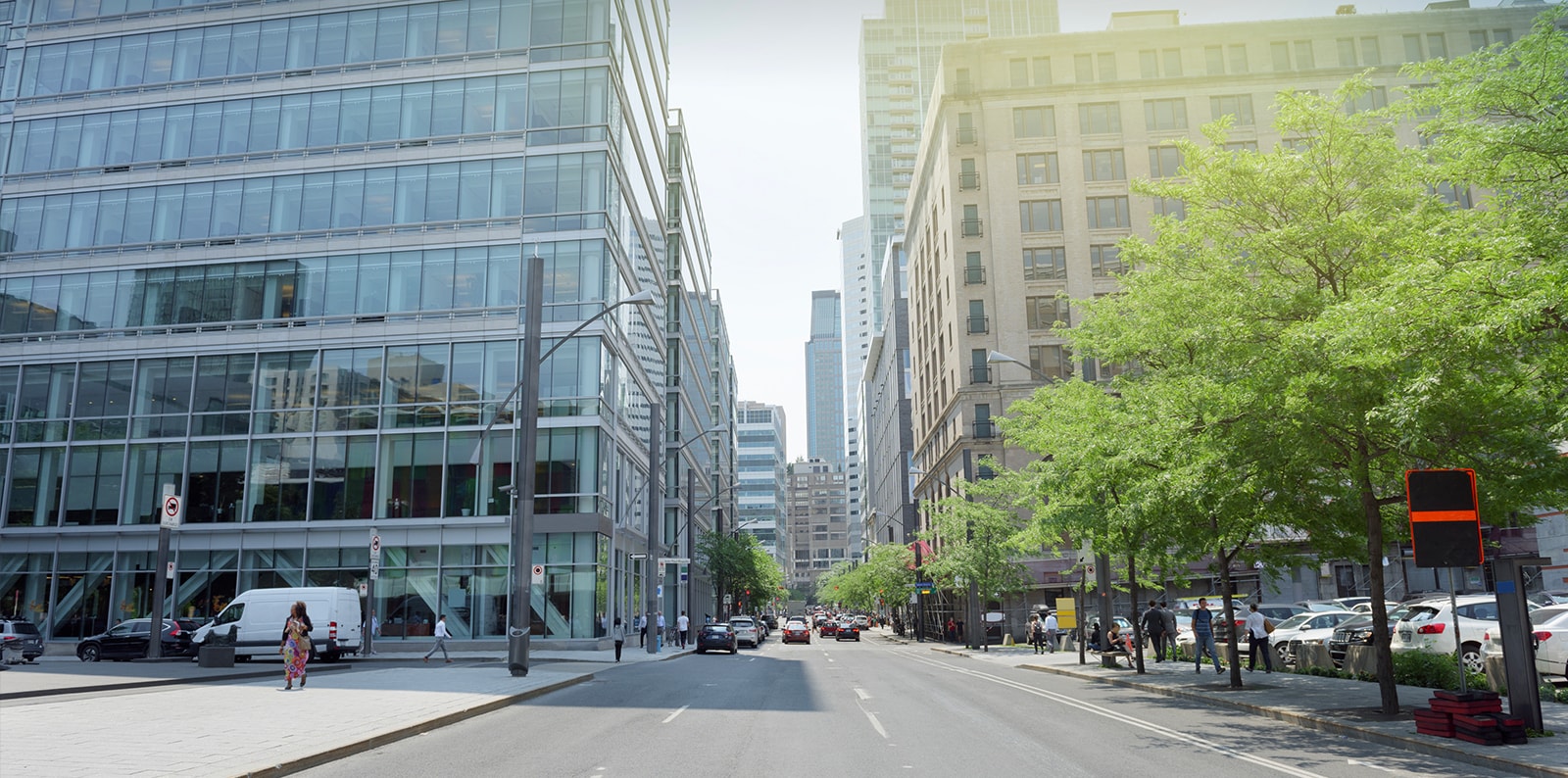At the end of 2024, Quebec commercial real estate landscape showed signs of resilience despite market headwinds, with transaction volumes increasing 12% compared to 2023. However, this recovery remains significantly below 2022 levels, suggesting a market still finding its footing amidst economic conditions still in the midst of stabilization.
Montreal’s market performance has been mixed, with transaction volume reaching $2 billion in 2024, showing improvement from 2023’s $1.89 billion but remaining significantly below 2022’s peak of $2.62 billion. The multifamily sector has demonstrated particular resilience, supported by major players re-entering, or entering for the first time, the rental market.
Throughout the year, the South Shore emerged as a particularly dynamic market, with numerous development projects breaking ground and anticipated densification targets and infrastructure developments. Notably, the Saint-Hubert airport expansion and the Port of Montreal’s Contrecœur terminal which position this area for sustained growth and further investment opportunity.
Innovative approaches to property repositioning have gained traction across different buyers.
Institutional investors maintain strong interest in suburban markets as population centers are spreading further away from Montreal’s downtown core. These properties, still under the 5-year rent control exemption, offer potential for significant rental growth despite higher financing costs.
The market has responded positively to policy changes, particularly the CMHC’s removal of restrictions on refinance proceeds and extension of maximum amortization for new construction projects to 50 years. These changes, coupled with the gradual reduction in interest rates, have started to unlock development potential, especially in the multifamily sector. Despite further changes to the MLI Select program later in the year, investors remain optimistic for the year ahead.
Looking ahead to 2025, several key factors will influence market performance:
The political landscape will play a crucial role, with both federal and municipal elections potentially reshaping policy decisions affecting real estate development and investment. Construction costs, while showing some moderation, continue to impact project feasibility and returns. Environmental considerations have become increasingly important in investment decisions, particularly following recent extreme weather events.
The industrial sector presents a mixed picture, with increased inventory availability compared to 2023. While traditional investment approaches may require adjustment, emerging submarkets and asset classes offer potential for strong returns. The market shows signs of transitioning from uncertainty to strategic opportunity, particularly in regions benefiting from infrastructure development and urban densification initiatives.
At Votre Équipe Immobilier, we maintain a cautiously optimistic outlook for 2025, particularly in the multi-residential sector where demographic trends and supply constraints continue to support market fundamentals. How are you positioning your portfolio to capitalize on these evolving market dynamics?
Contact us to discuss your investment strategy and explore opportunities in Quebec’s commercial real estate market. Our team’s deep market knowledge and extensive network can help you navigate these changing times successfully.


